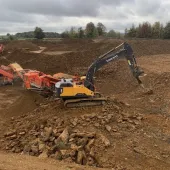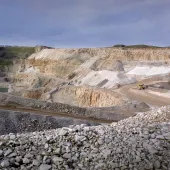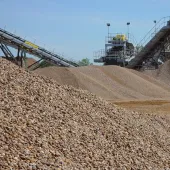Date set for Banks Group’s High Court challenge

Company gets the go-ahead for High Court challenge to rejection of Highthorn surface mine plans
BANKS Mining’s challenge to former Secretary of State Sajid Javid’s decision to reject their Highthorn surface mine planning application is set to go ahead in the autumn after a High Court judge ruled the company has an arguable claim.
The Co. Durham-headquartered firm gained unanimous approval for the Highthorn planning application from Northumberland County Council’s planning committee in July 2016, only for the decision to subsequently be called in for review by the then Department for Communities and Local Government, which led to a public inquiry into the project taking place last year.
After Mr Javid chose to disregard the recommendation of the planning inspector appointed by the Government that the Highthorn scheme should be allowed to go ahead, Banks Mining lodged a challenge with the High Court to this decision on the grounds that there are serious errors in the legal basis on which it was made.
Permission for the challenge has now been formally granted after The Honourable Mr Justice Ouseley concluded the appeal was ‘an arguable case’ and a date of Wednesday 17 October was set for what is expected to be a two-day hearing.
Gavin Styles, managing director of Banks Mining, said: ‘We are very pleased that our belief that we had solid grounds for this challenge has now been formally recognized and are looking forward to presenting what we feel is a strong case for quashing the Highthorn decision.
‘The approach adopted in reaching it could have far-reaching, unintended consequences for all hydrocarbon extraction industries…, including the shale gas industry, as well as other sectors of the minerals extractive industries and major infrastructure developments…and could significantly impact on UK industry’s competitiveness against overseas rivals.
‘While we fully recognize and accept that there needs to be a stable transition to a low-carbon economy, and are indeed already working successfully within the framework which is driving the phased reduction of coal from the electricity generating system, the fact remains that there will remain a clear and recognized need for coal during this phase-out period.
‘If we do not domestically produce our own coal for things like steel, cement, food and electricity production, we will simply be forced to import more from places like Russia, the US and Colombia.
‘Supporting skilled British jobs, delivering regional environmental and conservation enhancements, avoiding the carbon emissions caused by importing the coal supplies that the UK still needs, and providing a secure domestic supply of energy by meeting our continuing need for coal through domestic reserves makes far greater sense than relying on coal and gas imports from potentially unstable overseas markets that are thousands of miles away.’
Banks Mining’s challenge is based on the Secretary of State misdirecting himself as to the meaning of paragraph 149 of the National Planning Policy Framework, which relates to the environmental acceptability of mining proposals; the planning conditions and obligations that allow for the approval of such schemes; and the national, local or community benefits.
The company contends that the Secretary of State departed from the meaning and intention of this paragraph in his application of this guidance, and that the decision also wrongly takes into account greenhouse gas emissions from the ultimate use of coal as opposed to its production, which is a departure from a clear line of previous planning decisions on the same point.
Gavin Styles continued: ‘In 2017, coal demand in the UK was 14.4 million tonnes, 8.7 million tonnes of which were used for electricity generation and the remainder within a wide variety of important domestic foundation industries, such as the manufacture of cement and steel.
‘Even though this is a record low for coal generation, this demand is five times more than the UK is able to supply and nearly 20 times the planned annual production at Highthorn, with the shortfall being met by a doubling of coal imports from Russia and a quadrupling of imports from the US.
‘Coal’s position in the UK’s energy balance is still very important, a fact demonstrated by around 25% of the electricity used during the severe weather caused by the ‘Beast from the East’ being generated through its use, and it will continue to be so over the period of transition to a low-carbon generation network.
‘The Secretary of State’s misguided decision would make us ever more reliant on energy imports, as well as more vulnerable to both price rises and supply interruptions, the consequences of which will inevitably be rising prices for both domestic and industrial consumers.’
The Highthorn scheme would see Banks Mining create at least 100 full-time jobs on the site, invest £87 million into the Northumberland economy, keep a total of £200 million within the UK economy by not importing 3 million tonnes of coal that would otherwise come from overseas suppliers, and make supply chain contracts worth a total of £48 million available to locally based businesses.
Mr Styles continued: ‘The planning inspector, after a detailed and lengthy inquiry, concluded that ‘the national benefits of the proposal would clearly outweigh the likely adverse impacts’, which backs up the unanimous support we had for the Highthorn scheme from an experienced, cross-party Northumberland County Council planning committee.
‘We have been investing in Northumberland for four decades, and remain as keen as we've always been to extend this commitment still further.’









